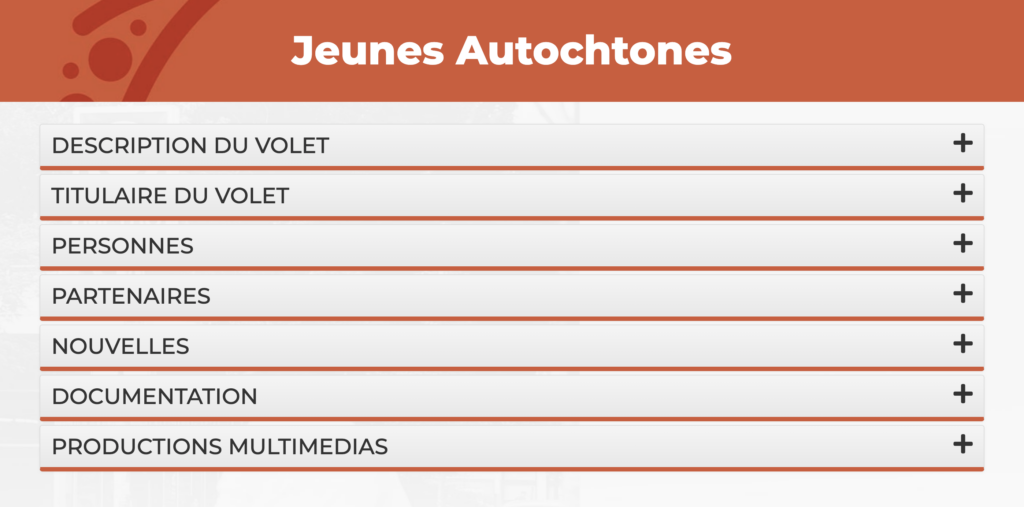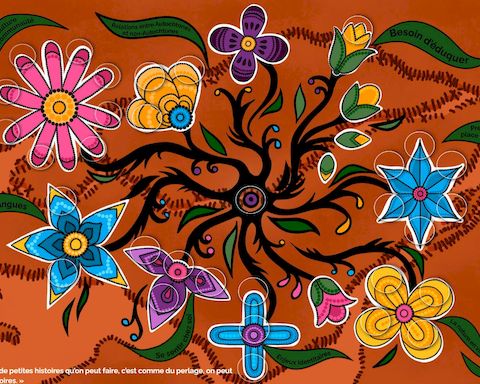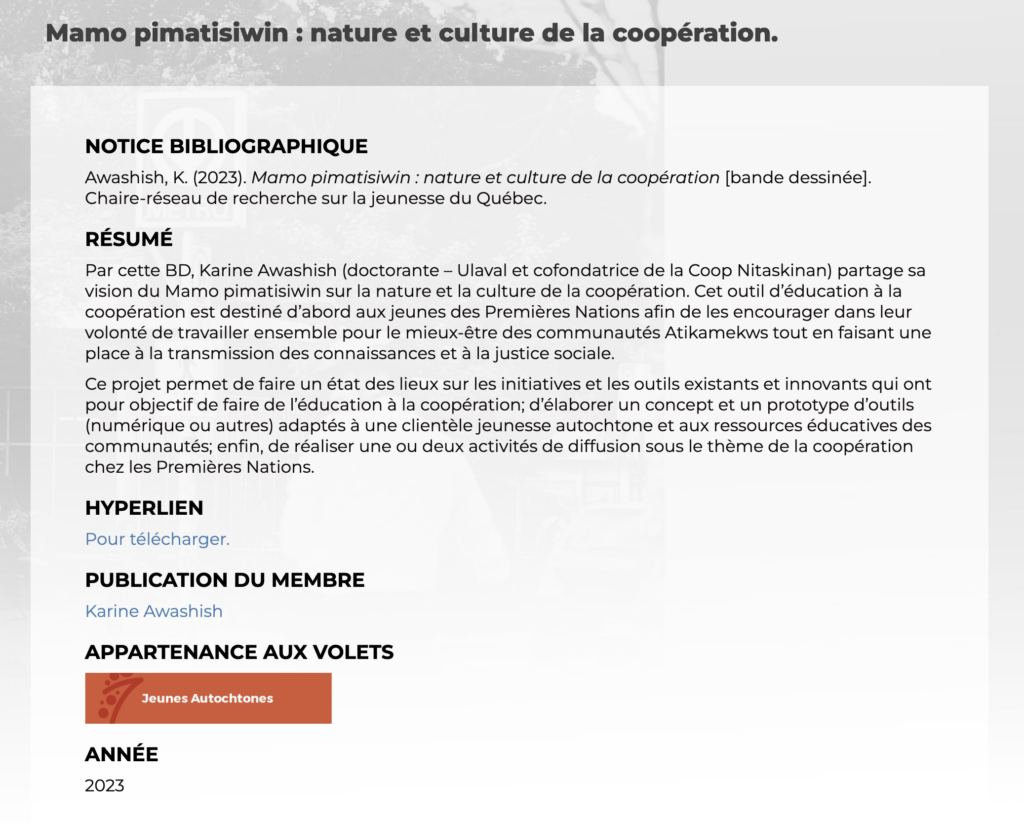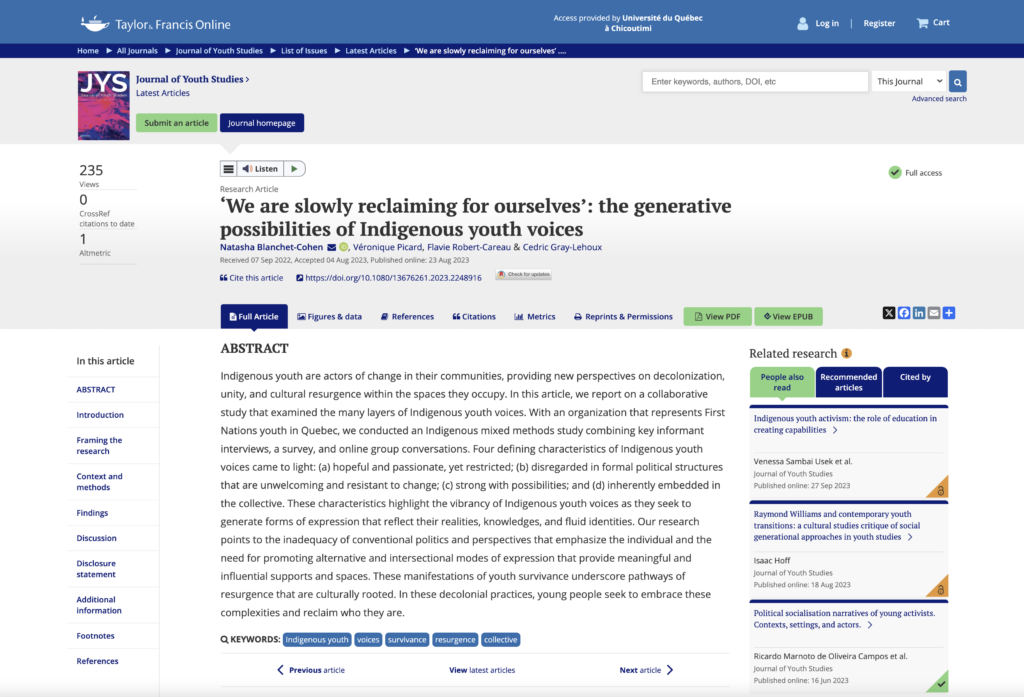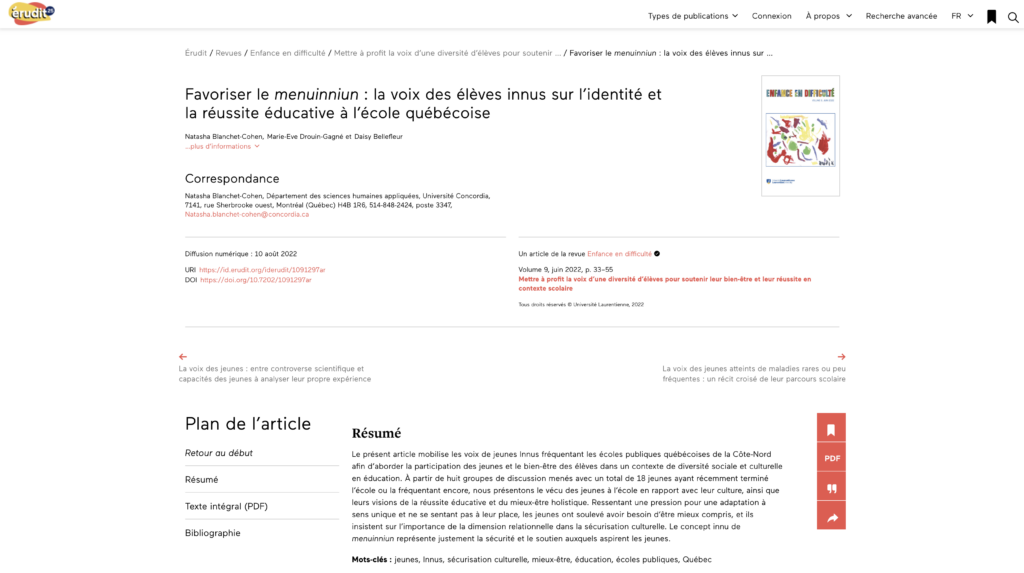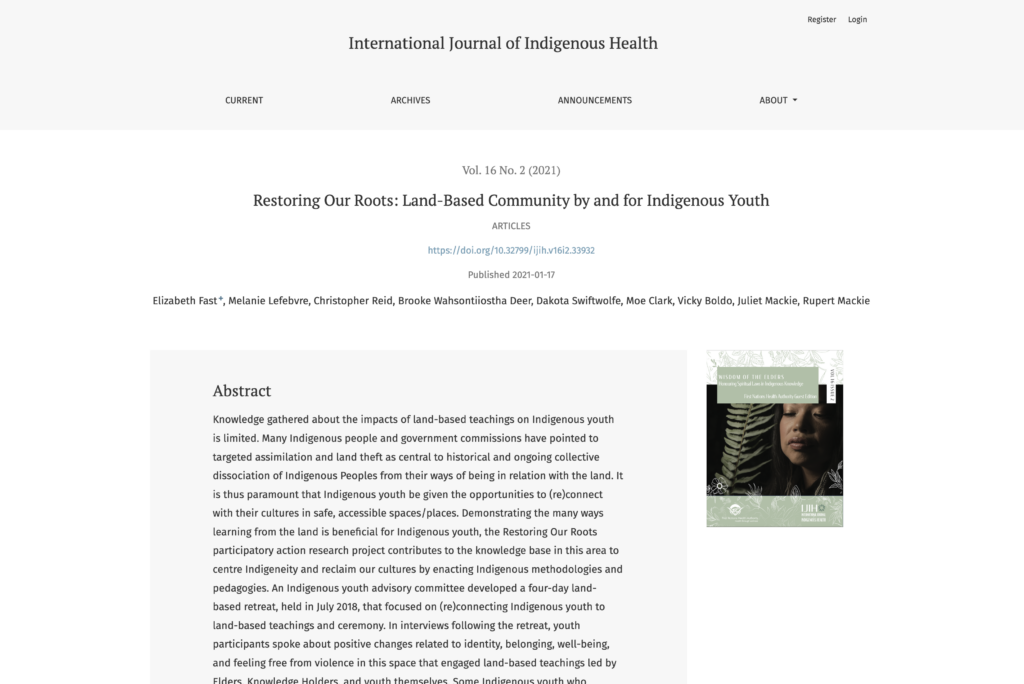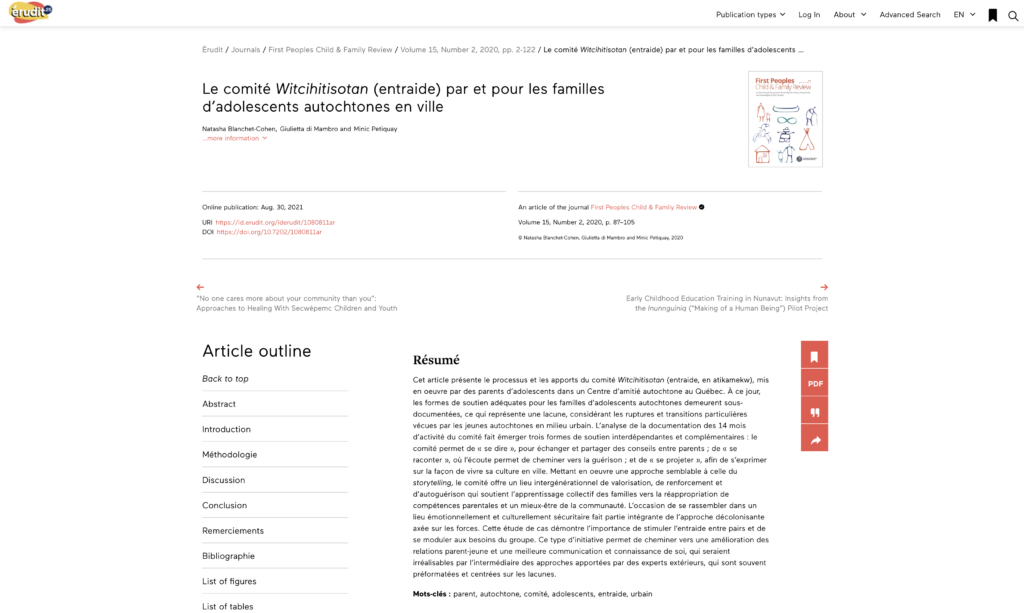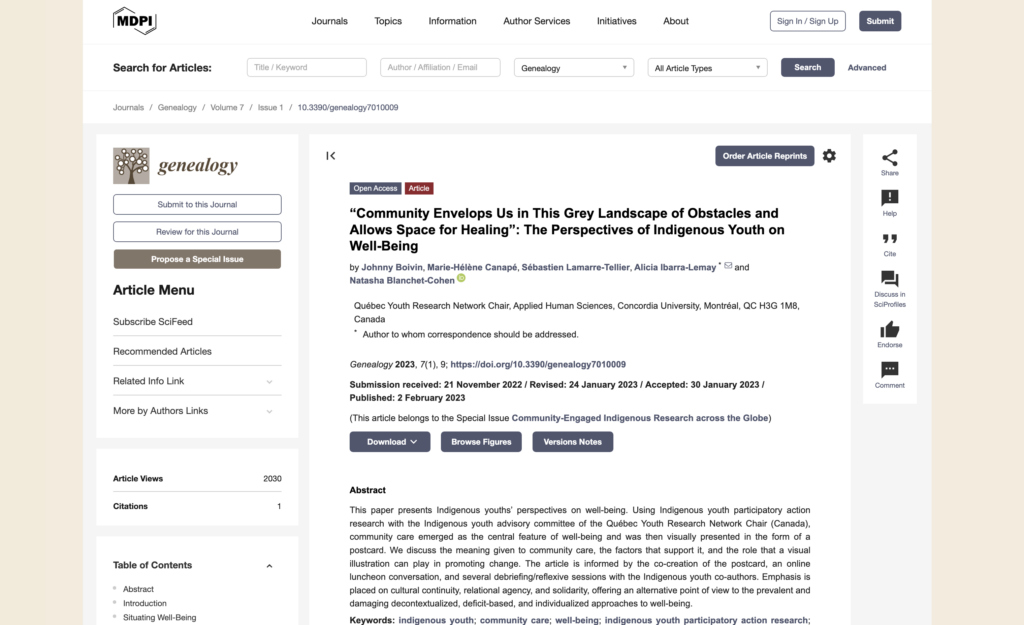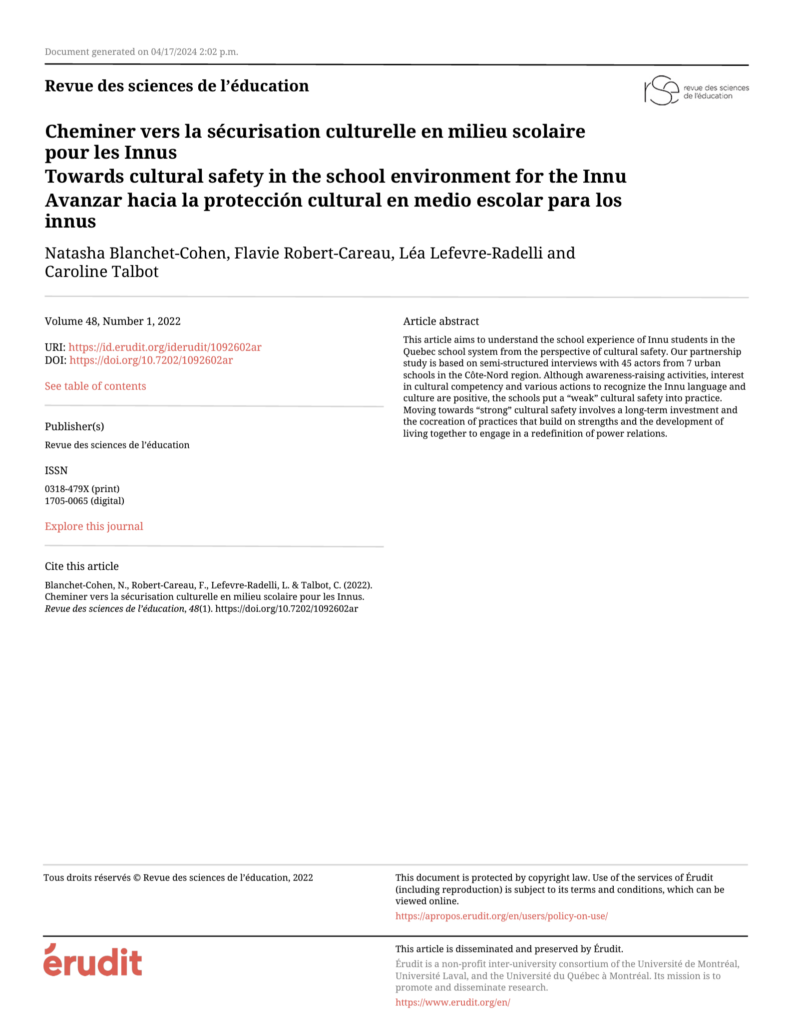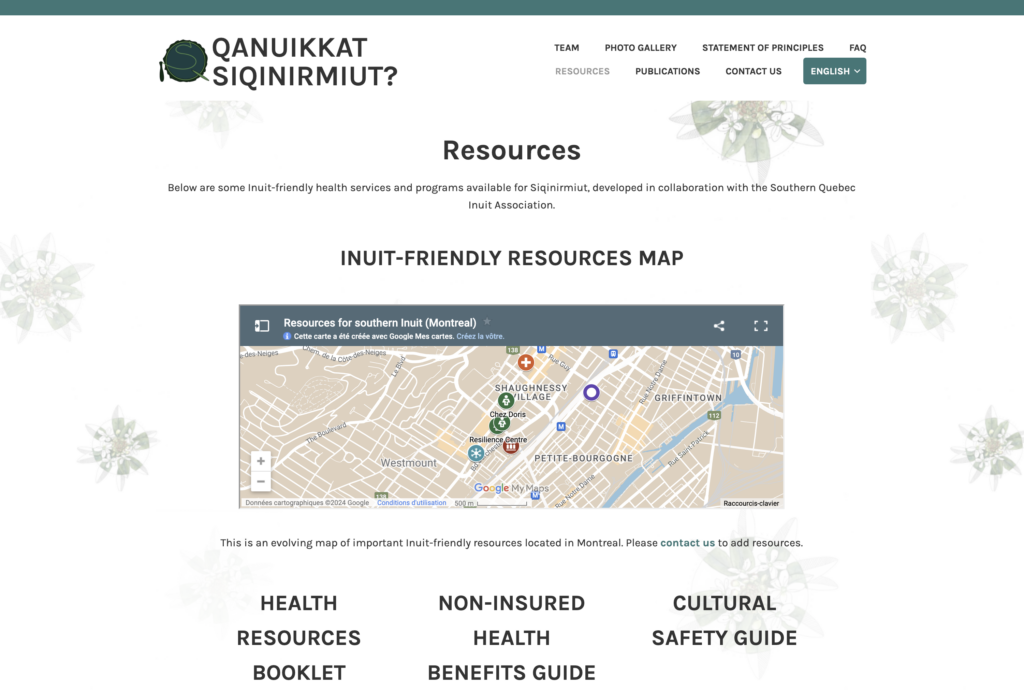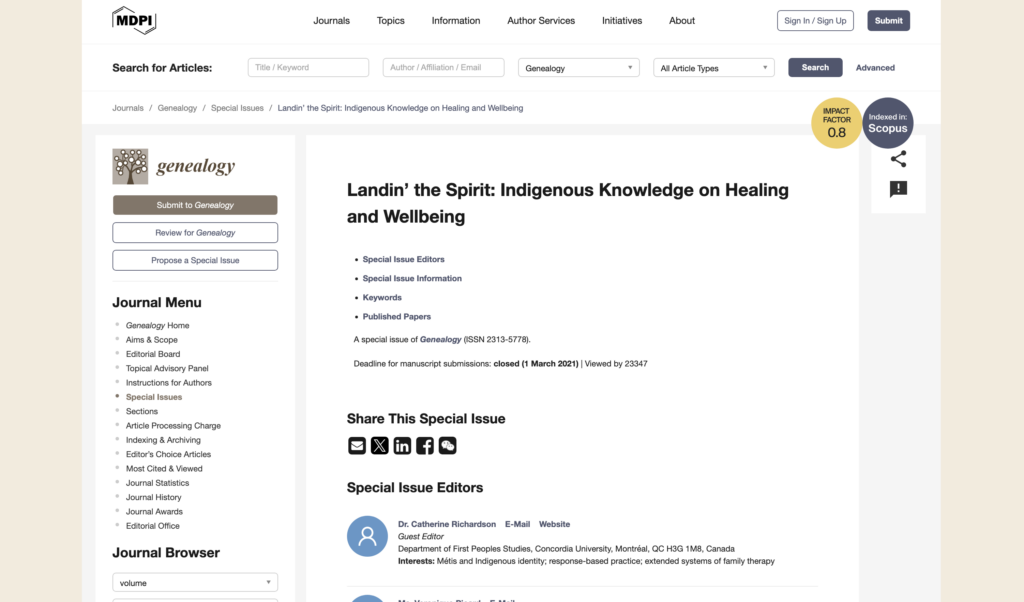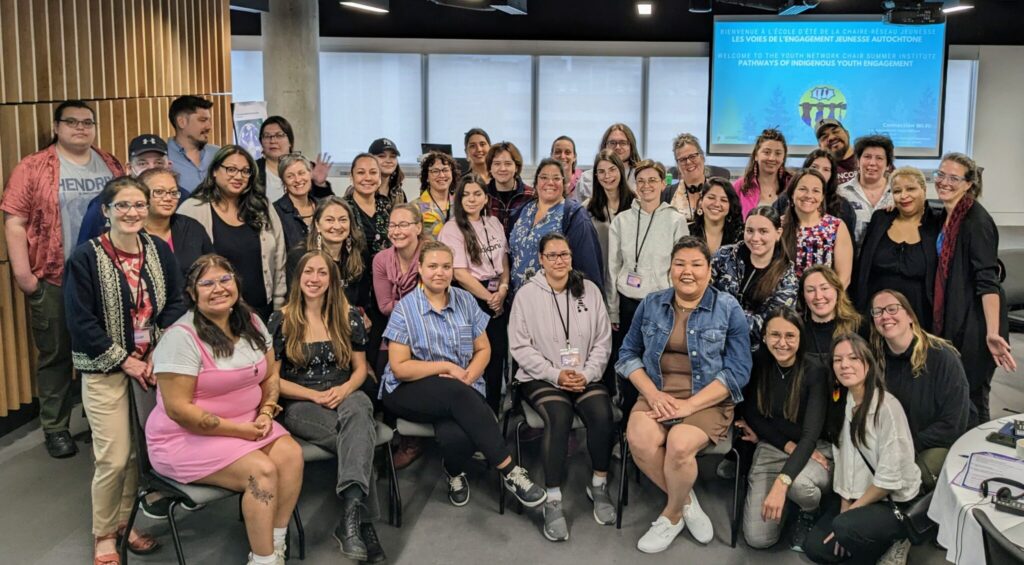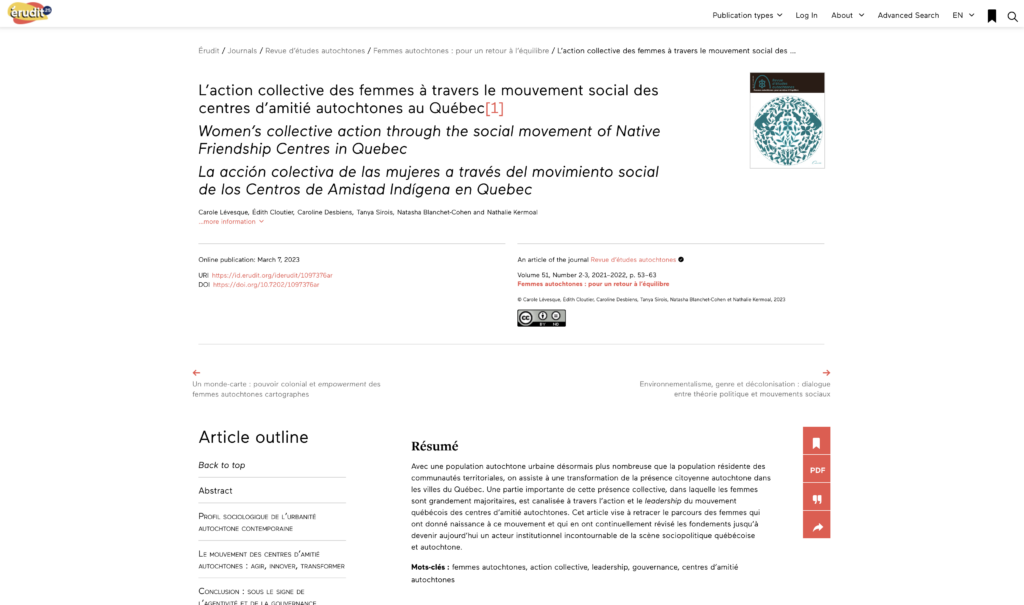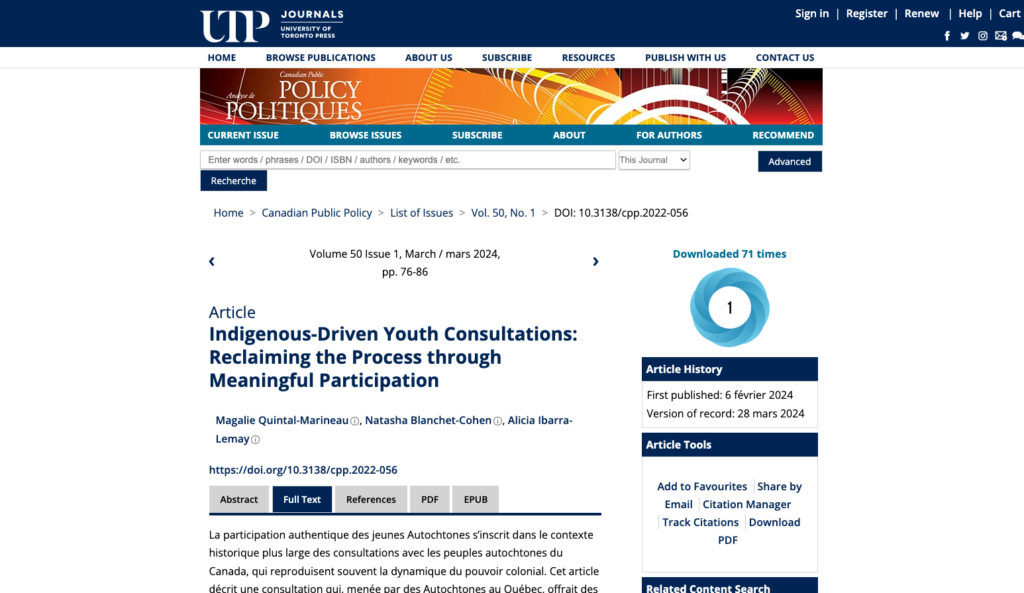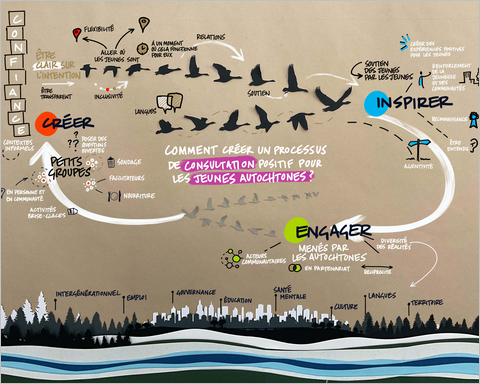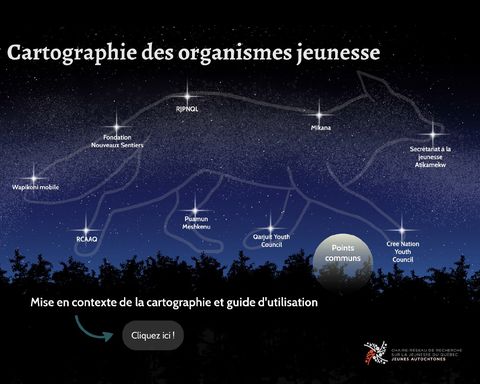Notice bibliographique
Moulin, S. (2022). Psychosocial risks and subjective well-being in the Canadian workplace: overlapping risk exposure, work ethic and resilience. Canadian Journal of Career Development, 21(1), 42-55.
Résumé
This article puts forward a new typology of workers, based on an enhanced set of indicators of psychosocial risks and well-being, and examines the character traits associated with each class membership. This article innovates by simultaneously taking into account how hostile behaviours, poor working conditions and employment precariousness are associated with different subjective measures of well-being. This study uses a person-centered approach by conducting latent class analysis on a representative sample of 5,867 Canadian employees. Six distinct clusters are revealed: “heavily suffering”, “unfulfilled precarious”, “unhealthy stressed”, “untroubled harassed”, “optimistic precarious” and “not exposed”. This article thus shows that it is not harassment or lack of social benefits per se that affect workers’ well-being. It demonstrates that workers’ well-being deteriorates only when hostile behaviours/conflicts and poor working/employment conditions overlap. Binary logistic regression analyses reveal that, controlling for other worker characteristics, this typology of workers is related to work ethic and resilience. The results suggest two key trends: overlapping exposure to precariousness, procedural injustice and poor prospects for career advancement reduces hard work ethic, while overlapping exposure to hostile behaviour/conflicts and competition reduces resilience.
Hyperlien
https://doi.org/10.53379/cjcd.2022.327Publication du membre
Stéphane MoulinAppartenance aux volets










